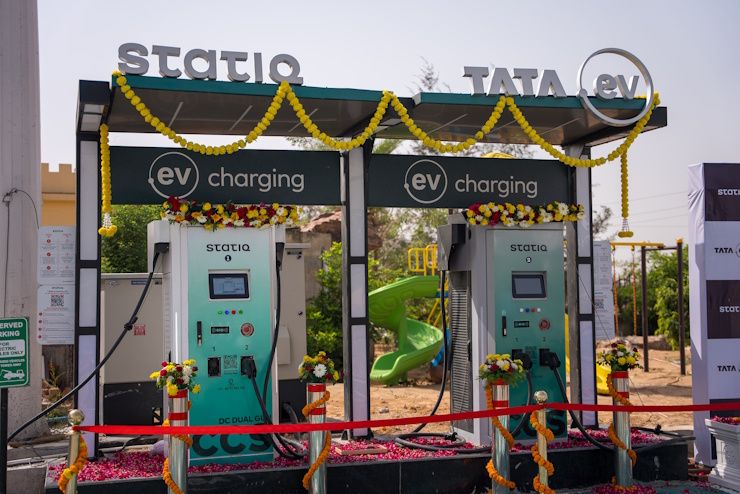Why Kerala - Once A Huge Electric Vehicle Buyer - Is Buying Less EVs? Explained


The numbers paint a clear picture of Kerala's electric vehicle story. In 2023, the state registered 75,812 electric vehicles. By September 2025, this figure had crashed to just 17,114 registrations. This massive drop shows how quickly things can change in the EV market when policies shift.

Kerala was once seen as a leader in electric vehicle adoption. People bought EVs because they made financial sense. The state offered a 50 per cent discount on road tax for electric vehicles, making them cheaper than petrol cars. This benefit lasted for five years, which convinced many buyers to switch to electric.
The biggest reason for the decline came when the Kerala government removed the road tax discount. Officials said enough people had already bought EVs, so the benefit was no longer needed. This decision hit the industry hard because buyers suddenly found EVs much more expensive.

The impact showed up immediately in registration numbers. In 2023, Kerala registered an average of 6,317 EVs every month. In 2025, this dropped to just 1,900 per month. The same pattern happened across the country, with national EV registrations falling from 15.32 lakh in 2023 to only 5.12 lakh by 2025.
Manoj Kurup from the Kerala Automobile Dealers Association points to several problems beyond taxes. The Kerala State Electricity Board now requires EV owners to install separate charging points and special circuit breakers at home. Earlier, these were optional. The new rules make buying an EV more complicated and expensive.
Several EVs caught fire across India last year, which scared potential buyers. People also worry about battery life decreasing after a few years of use. These concerns pushed buyers towards hybrid cars instead, which offer better fuel efficiency than petrol cars without the charging hassles of full EVs.

Charging infrastructure remains a major problem. The state electricity board runs only 63 fast-charging stations across Kerala. Officials have no plans to add more stations. They installed 1,169 pole-mounted charging points as trial projects, but expect private companies to build the rest. Private players have added around 800 charging stations, but this is still not enough for a state Kerala's size.
The 2025 state budget made things worse by increasing taxes further. EVs costing more than ₹15 lakh now pay 8 per cent road tax. Those above ₹20 lakh pay 10 per cent. This doubled the earlier 5 per cent rate and made EVs costlier than similar petrol vehicles.

Popular models like the Tata Nexon EV, Curvv EV, MG Windsor, and Mahindra XUV 400 fall in these higher tax brackets. A Tata Curvv EV priced at ₹18 lakh now attracts ₹1.44 lakh extra as road tax. This additional cost wipes out most savings from lower running costs.
Even battery rental schemes, meant to reduce upfront costs, face a flat 10 per cent tax regardless of vehicle price. This undermines efforts to make EVs affordable for middle-class buyers who cannot pay the full battery cost upfront.

Kerala's approach differs from neighbouring states. Telangana and Karnataka still offer tax breaks and incentives for EV buyers. They continue pushing electric vehicle adoption while Kerala focuses on generating immediate tax revenue.
The state risks falling behind in clean transportation while other regions move ahead with electric mobility plans.
The changes affect more than just car sales. Kerala had built a reputation as a sustainable transport leader. Those criticising Kerala say that the state moving away from EV promotion sends the wrong message about environmental commitments.
Many buyers now choose hybrid vehicles as a middle path, but this means Kerala might miss the bigger shift to fully electric transport that other areas are embracing.
The decline also affects the local EV ecosystem. Dealers, service centres, and charging network operators who invested in electric vehicle infrastructure now face reduced business. This creates a negative cycle where less infrastructure leads to fewer buyers, which leads to even less infrastructure development.
Kerala's EV story shows how quickly government policies can change market dynamics. The state went from EV champion to laggard in just two years, primarily due to policy reversals and practical challenges that made electric vehicles less attractive to buyers.
Via ET